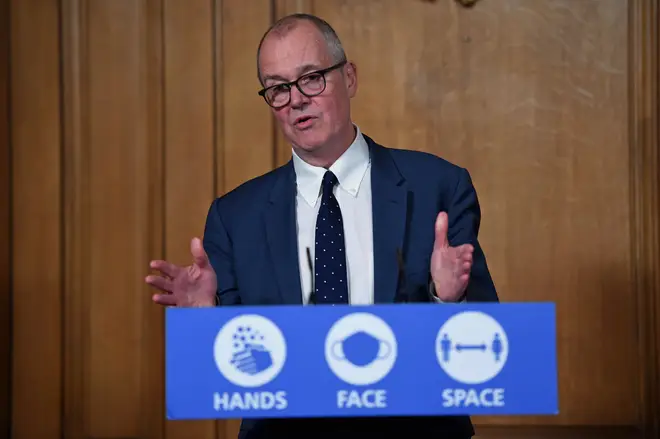
Clive Bull 1am - 4am
19 October 2020, 20:50

A Covid-19 vaccine is "unlikely" to fully stop the spread of the virus, the Government's chief scientific adviser Sir Patrick Vallance has said.
Giving evidence to the joint Commons and Lords National Security Strategy Committee on Monday, Sir Patrick said that only one disease - smallpox - had ever been completely eradicated.
He said that in future, treating Covid-19 may become more like seasonal flu.
"I think it is unlikely that we will end up with a truly sterilising vaccine that completely stops infection," he said.
"It is likely that this disease will circulate and be pandemic. My assessment - and I think that's the view of many people - is that's the likely outcome.
Read more: Business Secretary: Andy Burnham 'must come to the table and reach agreement'
Read more: Greene King boss: Tier 2 restrictions 'closure in all but name' for pubs
"Clearly as management becomes better, as you get vaccination that will decrease the chance of infection and the severity of the disease - or whatever the protocols of the vaccines are - this then starts to look more like annual flu than anything else and that may be the direction we end up going in."
Sir Patrick said that over the next few months it will become clear whether there are any vaccines that do protect, and how long for.

Richard Hatchett on vaccines will become available in the first half of next year
He added that while a number of candidates cause an immune response, only phase three trials will indicate whether they stop people from being infected.
Sir Patrick said: "And we will know that over the next few months. And at that point we'll also have some clearer idea on the safety profile of these vaccines and from there can start looking at what a sensible vaccination strategy could be across the population."
Read more: Government and Greater Manchester yet to reach agreement on lockdown measures
Read more: Labour MP Yasmin Qureshi hospitalised with coronavirus
He told the committee that he thought it "unlikely" that a vaccine would be available for "any sort of widespread community use" before at least spring next year.
But Sir Patrick said they "may" be some doses before that, but it remains to be seen.
Several vaccines are undergoing trials and ministers have cautiously estimated a breakthrough in early 2021.

Wales to enter 'fire break' lockdown to help stop rise of Covid-19
It comes amid deepening rows over the strategy to suppress coronavirus cases in the England's regions and the three other UK nations.
The British Government continues to argue for a regional approach to tackle the virus, but opposition leaders are calling for a national lockdown.
On Monday, Welsh First Minister Mark Drakeford announced a two-week 'fire break' national lockdown from Friday 23 October to Monday 9 November.
Read more: Wales to enter 'fire break' lockdown to help stop rise of Covid-19
However Mr Drakeford warned that he did not expect the virus to be under control by November 9, only that the lockdown was needed to slow down the rise in cases.
All non-essential retail, leisure, hospitality and tourism businesses will close and everyone will be required to stay at home wherever possible, including working from home.